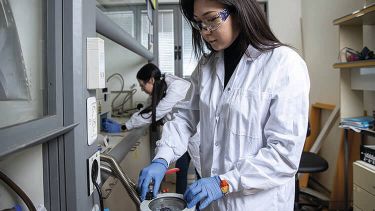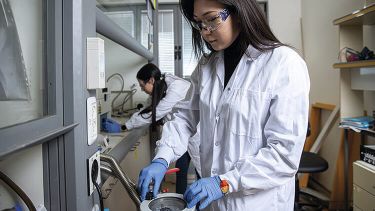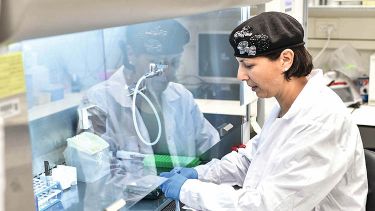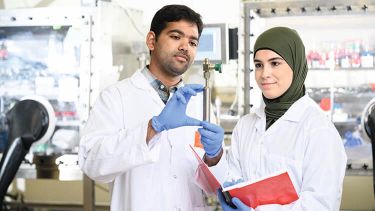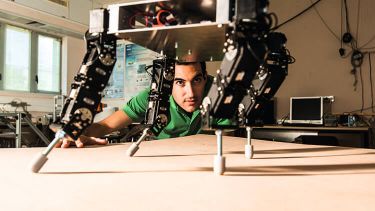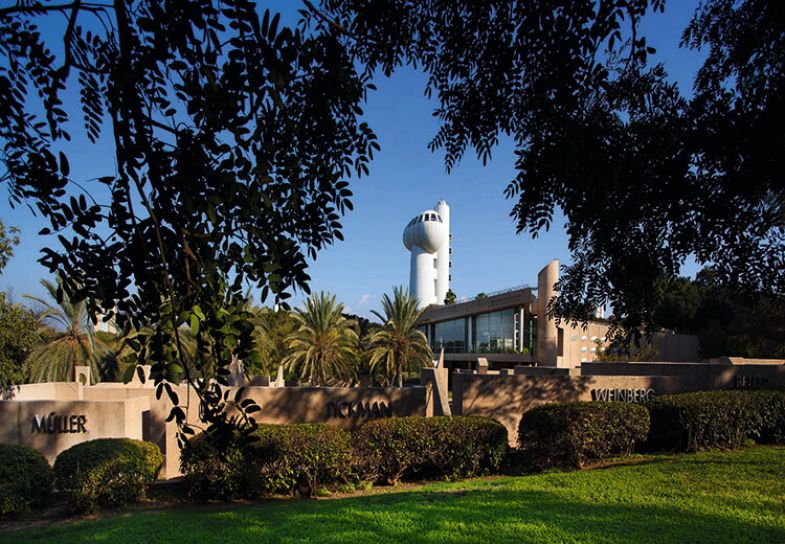
The Weizmann Institute of Science has been a world- renowned venue of pioneering scientific research since its inception. Read on to discover three of its flagship projects
Breakthroughs in neuroscience
How does consciousness emerge from complex neural networks? How does the brain respond to everyday experiences, emotional stress and physical trauma? Why does brain function decline with age, and what factors can contribute to mental illness? These are just some of the mysteries that the researchers who will play a role in the Weizmann Institute of Technology’s new Institute for Brain and Neural Sciences hope to answer. The Institute, which includes a
state-of-the-art building, will serve as a hub for more than 40 internationally renowned groups involved in brain research as well a home for new technologies to explore the brain like never before.
A ‘big data’ revolution
In every branch of science, from particle physics and genetics to environmental chemistry, new technologies are generating massive amounts of information. But huge data sets make interpreting findings a significant challenge.
Facing the issue head on, Weizmann Institute researchers are now developing artificial intelligence-based methods that can sift through mountains of data, revealing links that might have been overlooked by the human mind alone.
What’s more, the Weizmann Institute is also investing in a new project, the Artificial Intelligence Enterprise for Scientific Discovery, for the development of sophisticated AI tools and to provide the massive computing power necessary to store, process and analyze data that could lead to the next big discoveries.
Setting sights high
Last but not least is the Frontiers of the Universe initiative, which will create a powerful framework for solving mysteries related to particle physics and astrophysics — from the quantum distances that separate atoms to the unfathomably distant reaches of outer space.
One of the central components of the initiative is the new ULTRASAT satellite, weighing in at about 160kg. With a projected launch date of 2024, it will carry a telescope designed to observe the universe. Analysis of data from the mission is expected to help answer some of astrophysics’ most important questions about stars, black holes and the universe in genera
Dr Lorenz Adlung
Hailing from Germany, Dr Adlung joined the Institute in 2017 to study how the immune system interacts with the body’s bacteria. He’s found it an enriching experience and, in the process, he’s found a new home away from home, too. “The atmosphere is welcoming, motivating and inspirational,” says Dr Adlung. “It’s scientifically excellent, largely due to the people and their mindset. It provides an environment to foster creativity and scientific excellence.”
Weizmann was ranked eighth in the world for research quality by the CWTS Leiden Ranking 2020, which assesses thousands of major universities and research institutions

